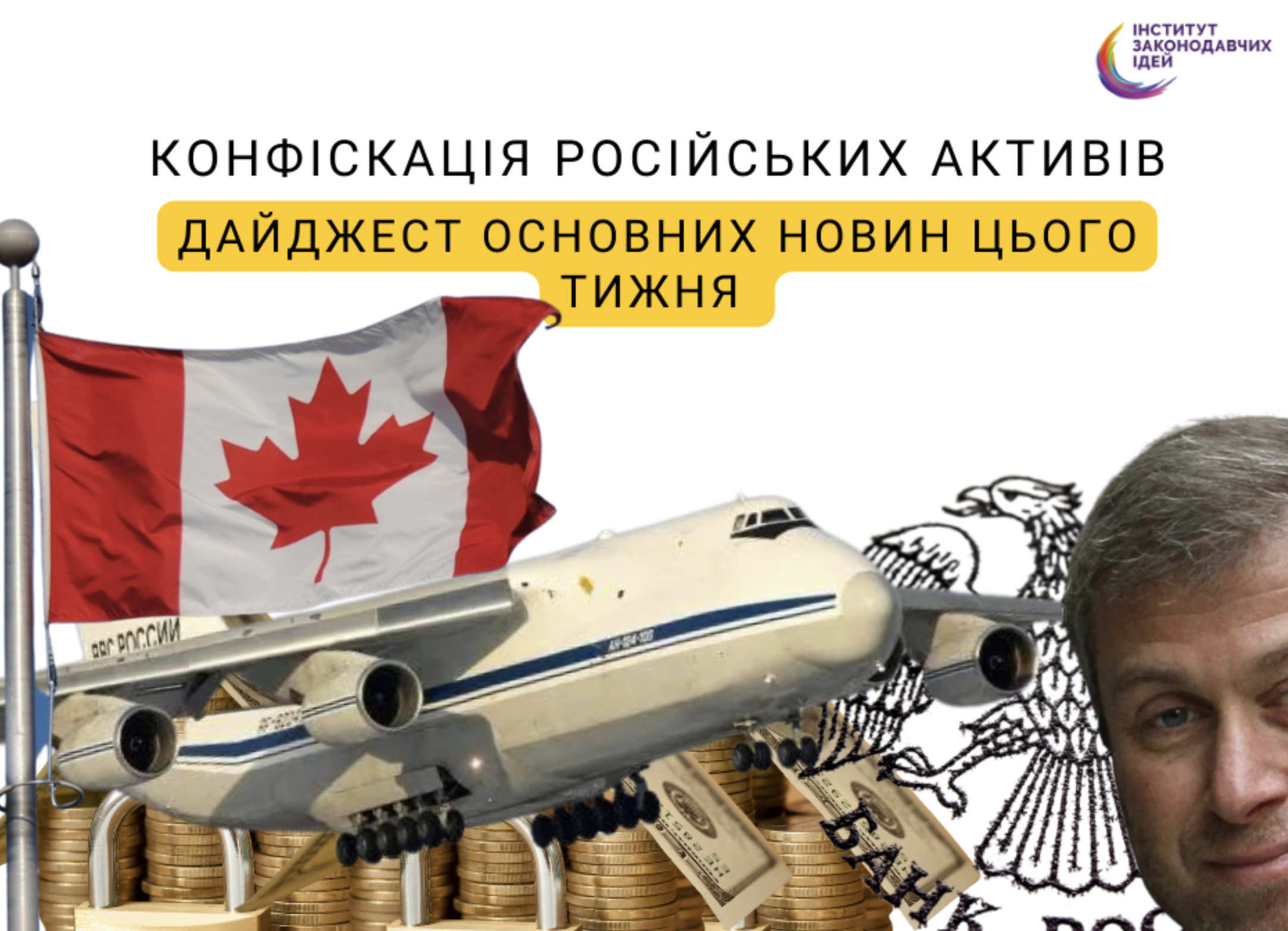
This week was full of events related to the seizure and confiscation of Russian assets both in Ukraine and abroad
The Institute of Legislative Ideas has prepared a selection of the most significant news of these days:
- Ukraine is going to confiscate the assets of the ‘collaborator governor’ Volodymyr Saldo. This is likely to include the assets of his wife and daughter, as well as businesses in the Kherson and Zhytomyr regions. Volodymyr Saldo is a Ukrainian who was sanctioned by the National Security and Defence Council on 19 October 2022 for supporting Russia's military aggression against Ukraine. The SBU established that he, with the support of the armed forces of the Russian Federation and representatives of the aggressor state, took several measures to prepare and organize an illegal referendum.
- The Ministry of Justice has also filed a lawsuit with the HACC to confiscate the assets of PJSC Moscow Exchange MICEX-RTS. The Moscow Exchange is a de facto monopolist in the Russian market for capital market services and products. Among the owners of the Moscow Exchange are the Central Bank of the Russian Federation (11.7%), Sberbank of Russia (10%), and the state corporation VEB.RF (8.4%).
- The United Kingdom imposed sanctions against Abramovich and Usmanov's financial intermediaries as part of its fight against oligarchs' enablers. The new sanctions, announced by Foreign Secretary James Cleverly on 12 April, target those who knowingly helped sanctioned Russian oligarchs hide their assets in complex financial schemes.
- Canada has introduced another package of restrictions against Russian entities and individuals. According to Prime Minister Shmyhal, the sanctions include Volga-Dnepr and the An-124 aircraft, which have been blocked in Canada since the beginning of the war. The next step is to confiscate Ruslan and other assets and transfer them to Ukraine.
- The EU is facing the problem of finding money for the Central Bank. European Commission President Ursula von der Leyen said that all Russian assets seized by the European authorities - the yachts of oligarchs, their villas in the Mediterranean, and the Central Bank's reserves - should be used to rebuild Ukraine. However, the EU's project to confiscate the assets of the Central Bank of Russia may fail due to the complexity of the process of finding these funds. It is unclear where exactly in Europe the Russian central bank's reserves are located - this is the largest amount of frozen money, according to the Commission, about €300 billion.
- Switzerland. Swiss banks have tightened control over their Russian clients, including UBS and Credit Suisse. A Swiss lawyer said that banks have already started blocking accounts of Russians who pay taxes to the Russian budget.
- Germany. The Minister of Economy has called for increased responsibility for circumventing sanctions against Russia. He said that Germany could learn from Denmark when it comes to combating illegal circumvention of these measures. According to the German minister, Danish customs authorities analyze trade flows and customs data very carefully for anomalies.
More information on the situation with the confiscation of Russian assets can be found on our confiscation tracker, an interactive website that displays up-to-date information on amounts, legislation, court decisions, and political positions on confiscation.



